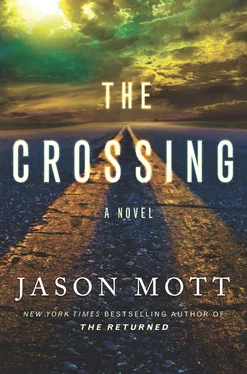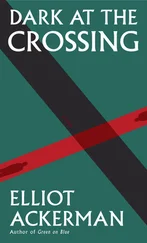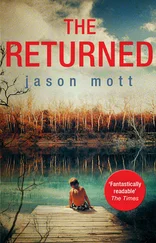That night in bed, I told your mother about Clarence and what he’d said.
“I think he’s right,” she mumbled. It was early still but she was already half-asleep.
“Right about what?” I asked. “What he said didn’t make any sense.”
“Wise words coming your way,” she said, just as she fell asleep.
It was that morning’s horoscope.
It felt like everyone was talking about something but had forgotten to clue me in on the conversation.
Meanwhile, the world and the things that happened in it made my job a little harder every day. But still, I did my work, and each and every Sunday, Clarence’s newspaper came out with my byline and some story that made it seem as if everything in life made sense. And all the while insomnia was my friend and I felt like a fraud because there you were, growing, next to me in the bed inside your mother, and I was just perpetuating a lie. I was saying that everything was okay and that everything would continue to be okay. Parenting 101: The Art of Hopefulness.
Then one day, Clarence came in and canceled my column. “It’s all just getting too big,” he said.
“That’s no reason to cancel me,” I said. “I’ve got a kid on the way.”
“I know,” he said. “I didn’t say I was firing you. I’ll still find something for you to do. Sports maybe. Or crime. There’s enough of that to spread around.”
I didn’t want sports and I didn’t want crime. I wanted people. I wanted to write about the fair that had just arrived. I wanted to describe the way the lights lit up the sky until they reached the clouds. I wanted to talk about the laughter that could never drown out the familiar and strange music that seemed to rise up from everywhere at a fairground, sounding unlike anything else over the course of your life. I wanted to tell people about the Whirl-and-Twirl, the Teacup ride, the Rocking Ship and the Rocket Ship, the Bumper Cars, the cotton candy that promised heaven and diabetes at the same time. All of it mattered just then. It wasn’t hope anymore, it was doctrine. People needed to know it still existed just like they needed to know that there was someone who heard their prayers in the late hours of the night.
And that someone, in a certain type of way, was me. By writing it all down I was saving everything. Preserving the moments that can be easily forgotten. Saving them not for me. Not even for you. But for everyone.
Clarence published me only once a month after that. He added crime. He added sports. He added terrorism. He added politics. He poured it all on. Milk onto cereal. But once a month people got better news. They got to hear about that fair. And after it had come and gone, I wrote another piece on it, so that they would know that just because they couldn’t see it anymore didn’t mean it wasn’t still out there. Still alive. Still pouring light up into darkness.
We changed the title of my column to The Art of Hopefulness not long after that. It was your mother’s suggestion. “Hope,” she said, “is just imagination put into practice.” I couldn’t tell if it was my horoscope for the day or her own idea.
Конец ознакомительного фрагмента.
Текст предоставлен ООО «ЛитРес».
Прочитайте эту книгу целиком, купив полную легальную версию на ЛитРес.
Безопасно оплатить книгу можно банковской картой Visa, MasterCard, Maestro, со счета мобильного телефона, с платежного терминала, в салоне МТС или Связной, через PayPal, WebMoney, Яндекс.Деньги, QIWI Кошелек, бонусными картами или другим удобным Вам способом.












